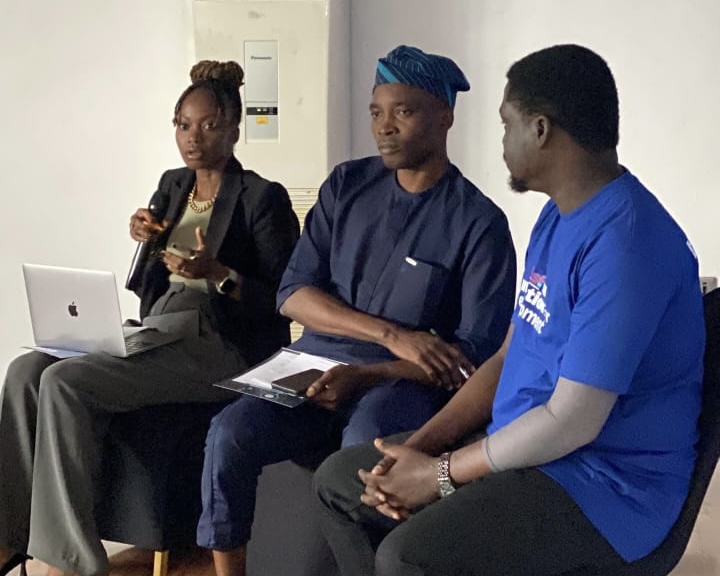Experts have called for the localisation of artificial intelligence (AI) models, stronger regulatory frameworks, and closer collaboration between academia, industry, and government to accelerate responsible AI adoption in Nigeria.
The call was made during a postdoctoral fellowship panel session organised by the New Thoughts Media Support Foundation (NTMSF), which brought together leading researchers and practitioners to examine Nigeria’s evolving AI landscape.
AI Adoption Growing — But Mostly Surface-Level
Dr Aderonke Lawal highlighted the rapid yet largely superficial adoption of AI across Nigeria. She observed that while Nigerians are enthusiastic users of AI tools in education, business, and the creative industries, many lack a deeper understanding of how these technologies work.
“Nigerians are very enthusiastic about embracing technology,” she said. “But what we’re seeing is a surface-level adoption. People use these tools without fully understanding their inner workings, which poses potential risks.”
She identified key barriers including unreliable infrastructure, limited AI literacy, underrepresentation of local languages in global AI models, and the absence of clear regulatory guidelines.
Structural Barriers and the Case for Localisation
Dr Kayode Odeyemi emphasised that Nigeria’s AI journey is characterised by a mismatch between high user enthusiasm and the lack of locally adapted solutions.
“We are using these tools, but without localizing them to our cultural and linguistic contexts,” he said. “To bridge this gap, we must build models that reflect our norms, languages, and cultural logic.”
He argued that localisation would help mitigate issues such as language bias and misclassification, which frequently occur when foreign-trained AI models interact with Nigerian linguistic and cultural nuances.
Dr Odeyemi further underscored the need for coherent national policies to align the efforts of universities, innovation hubs, and research institutions working on AI-related initiatives.
Tackling Misinformation in the Age of AI
Dr Lawal, whose research focuses on AI-driven misinformation, warned that AI-generated content is increasingly blurring the line between fact and fiction, complicating efforts to combat fake news in a country already battling low media trust and widespread illiteracy.
She proposed three key strategies for mitigating this challenge:
- Building a verification-first culture in newsrooms.
- Improving AI literacy among journalists and media practitioners.
- Promoting transparency and traceability in AI use, including clear disclosure when AI tools are involved in content creation.
“Seeing is no longer believing,” she cautioned. “We need systems that make the media accountable and ensure accuracy over speed.”
Collaboration as a Key Opportunity
Looking ahead, Dr Lawal identified stronger collaboration between academia and industry as the single biggest opportunity for Nigeria’s AI ecosystem.
“Many academics work in isolation, and industry players often develop solutions without leveraging academic research,” she said.
“If we can build innovation pathways through universities and bring all stakeholders; including policymakers and legal experts to the table, we can move beyond consumption to creating our own AI models.”
A Framework for Inclusive AI Development
In his virtual remarks, Dr Jibril Abdullahi outlined a four-pillar framework for effective AI development in Nigeria. The framework focuses on:
- Data application tailored to local contexts
- Infrastructure and enabling environments
- Rigorous evaluation and ethical standards
- Inclusive adaptation through stakeholder feedback
He emphasised that effective collaboration among government, academia, industry, and civil society is essential to ensure that AI solutions address Nigeria’s real societal challenges.
“Despite the presence of AI in Nigeria, there’s still a lot of foundational work to be done,” Dr. Abdullahi noted. “Collaboration and policy alignment are essential.”
The experts agreed that Nigeria stands at a critical juncture in its AI journey. With growing enthusiasm and an expanding innovation ecosystem, the country has an opportunity to pioneer an African model for responsible and inclusive AI, one grounded in localisation, ethics, and policy coherence.





